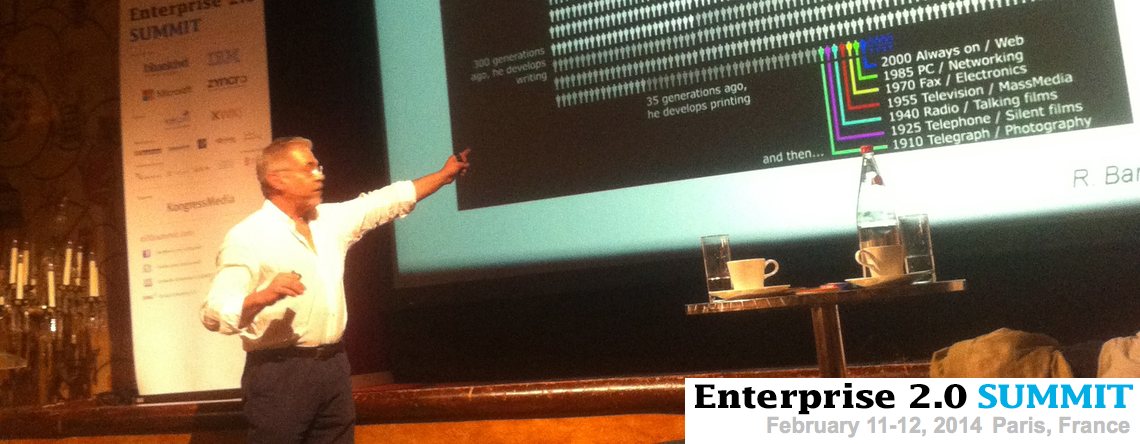 Every revolution has its victims. Collateral damage if you like. Of course, we would like to minimize the casualties as much as possible, after all, our aim is social.
Every revolution has its victims. Collateral damage if you like. Of course, we would like to minimize the casualties as much as possible, after all, our aim is social.
It’s not just people, but whole job descriptions or even departments that will pass into oblivion. And if you do not keep up, you will be left behind. But, new skills, jobs and departments will pop up all over the place.
SaaS
Software as a Service. Office 365, for instance, can function completely within a browser. The idea behind this is that you, as a business, do not have to worry about keeping the systems up to date. You do not have to distribute a new package across every laptop and desktop throughout the company.
No need to test the latest update on your system and no worries about updates going wrong. You probably won’t even know it’s been updated.
Cloud
Data storage is cheap. Well, at home it his. Buying a 3 TB HDD no longer requires a second mortgage on your home. And many desktop comes with 1TB as standard. It’s not expensive any more.
However, if you have an average sized company, storage can be a major pain in the proverbial butt. Servers need to be monitored 24/7. Data needs to be available, secure and backed up. You cannot take any changes.
Wouldn’t it be sweet to outsource all those worries? I bet it is.
Trust and security might be a worry here, we know Prism is real. So, some scrutiny is warranted.
Then again:

Bring your own
Mobile devices, and tablets are ubiquitous by now. There’s really no two ways about it.
However, a lot of companies still do not supply a smart phone for whatever reason. Money, fear of people being connected all the time or being to active on social networks, who knows.
The world, in the meantime, is moving en mass towards these devices and employees tend to get their own. Whether ‘the boss’ likes it or not, people will buy and bring there own device.
And they want to use them.
ICT has the challenge to enable the corporate network to communicate with these devices, especially e-mail.
Keeping Up
In ICT (which used to be just IT) it’s sometimes difficult to stay up-to-date. Technology advances so quickly that by the time you’ve learned a new skill another is lurking around the corner.
Social Business is not helping with these difficulties. ICT might be one of the most difficult departments of a company to change. Not on a philosophical level, but on a practical level.
Imagine what ICT does and how it can effect them.
- Licences need to run out or upgraded to new services.
- Workflows need to be adapted on a fundamental level or discarded in its entirety.
- Data has to be migrated to new platforms.
- E-mail (Exhange) servers can be dismantled (if all goes well).
- New software and platform skills need to be learned (for maintenance and support purposes).
- Communication and registration of knowledge need to be open and available.
- New accounts acquire a completely different routine.
Obscurity
Most of the services ICT provides are never seen, done in the background, in the basement of the building. There is hardly any contact with the rest of the business. And if something goes wrong and they have to come out into daylight to “do something” to your workstation because “it just doesn’t work”, you know the ICT nerd when you see him by his pale complexion and Star Trek themed Android.
Don’t you love a good stereotype?
But, it’s true, partly. We don’t know exactly what ICT does (well, I do, but you get the point). Only ICT knows what ICT does. We’re just happy when everything works and get angry when it doesn’t.
Making everything “just work” however, is an amazing and under appreciated challenge. The coming of Social Business with its new technologies and philosophies doesn’t make that easier.
Add to that all the disruptors out there wanting to work the way they want to work, on the platform and device of their choice and there is a fair chance some ICT professionals get a little cross with us.
No Standard
Social Business is still a (relatively) young business. There is no standard. There is, however, an amazing growth in providers of platforms, some with free subscriptions. Paving the road for multiple platforms to be used within the same company.
Neglecting this, and the growth might get out of control. Making the choice for a future platform more difficult, and putting ICT into a position where they’re made responsible for smoothing everything out again.
I know technology shouldn’t drive Social Business, people should. But tech makes up a third of the ingredient for a successful change, you cannot do this without ICT.
Thusly, I suggest that ICT is represented at the start of the change. Not necessarily to input or suggest on a platform, but to stay up to date of the plans and progress. Giving them the input they need to stay on top of the game.
Because, let’s face it, without technical support, there is no Social Business.
 The preparations for the upcoming Enterprise 2.0 Summit 2014 are in full swing. Kongress Media, the organising company, is planning the event for 11 -12 February, again in Paris (we do not mind that).
The preparations for the upcoming Enterprise 2.0 Summit 2014 are in full swing. Kongress Media, the organising company, is planning the event for 11 -12 February, again in Paris (we do not mind that). Olivier can be found “at the junction of management, technology & culture, to maximize knowledge work & make organizations more competitive.”
Olivier can be found “at the junction of management, technology & culture, to maximize knowledge work & make organizations more competitive.” Celine has been featured on this blog before. She’s an Engagement and Social Collaboration Leader. She’s the embodiment of The Disruptor.
Celine has been featured on this blog before. She’s an Engagement and Social Collaboration Leader. She’s the embodiment of The Disruptor. Dan is the Intranet Product Manager at ING. A Romanian born, working in the Netherlands at ING for over 3 years now.
Dan is the Intranet Product Manager at ING. A Romanian born, working in the Netherlands at ING for over 3 years now.

 Every revolution has its victims. Collateral damage if you like. Of course, we would like to minimize the casualties as much as possible, after all, our aim is social.
Every revolution has its victims. Collateral damage if you like. Of course, we would like to minimize the casualties as much as possible, after all, our aim is social.

 One of the more prominant podcasters I know is
One of the more prominant podcasters I know is